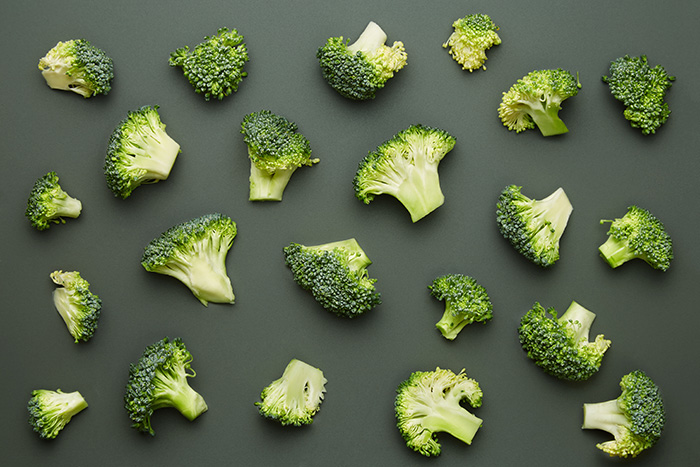The 5 food myths you can ignore
Improve your nutrition knowledge by ignoring these common food myths so you can build the leaner and fitter body you want!
Myth 1: Never microwave veg!
Two factors affect the nutritional quality of cooked vegetables: the duration of their exposure to heat, and the duration of their exposure to water. That’s why – according to research from Harvard Medical School – boiling is the worst way to cook vegetables from a nutrient-preservation point of view, whereas microwaving – they’re only briefly exposed to heat and not exposed to water – retains more goodness. It’s worth noting, however, that some vegetables are more nutritious once boiled: boiling carrots, for instance, makes more of their nutrients easy to absorb. The key is to eat as wide a range of veg as possible, and to cook it in the way that makes it most appealing to you. Here’s the easy way to hit your five-a-day.
Food Myth 2: Red meat will kill you!
A diet that includes lean red meat can lower levels of low-density lipoprotein (LDL or “bad”) cholesterol and increase absorption of omega 3 fatty acids, according to a study published in the European Journal Of Nutrition, as well as providing iron, zinc and, of course, protein. But you should limit your consumption of red meat to no more than 500g a week, according to the World Cancer Research Fund, and cut out processed red meat, to reduce your risk of bowel cancer.
Check out the New Body Plan Podcast!
Listen now!
Myth 3: Eggs raise cholesterol levels!
This is true, but it’s not good a reason to avoid eating eggs because they contain high-density lipoprotein (HDL) cholesterol, which is the “good” type essential for optimal health. A US study of 10,000 adults found no correlation between moderate egg consumption (one or two a day) and an increased risk of cardiovascular diseases or strokes. Eggs are also high in protein and healthy fats, making them one of nature’s top health foods. Here’s three reasons why you should eat more eggs.
Food Myth 4: Only red wine helps health!
Red wine contains a chemical compound called resveratrol, which has been shown to have heart-protecting properties by numerous studies. But research published in the journal Circulation found that one alcoholic drink per day helped reduce the risk of heart disease, regardless of whether that tipple was beer, wine or spirits. Drinking more than this amount too often, however, increases your risk of serious health problems.
Myth 5: Low-fat food is best!
Foods labelled as low-fat alternatives are presumed by many people to be a healthier option, but many items can contain the same amount of calories as the full-fat version because the fat has been replaced by sugar to hide the change in flavour.
A study in the Journal Of Marketing Research found that people ate 28% more chocolates if they were labelled as low-fat, which led to an overall increase in calories consumed. And while full-fat dairy may be higher in calories than the reduced-fat kind, one serving a day of full-fat cheese can actually help you lose weight, according to research from Stockholm’s Karolinska Institute. This is because its combination of protein and healthy fats keeps you feeling full and prevents snacking.
To find your perfect transformation plan, take the New Body quiz!
Take the New Body quiz!

